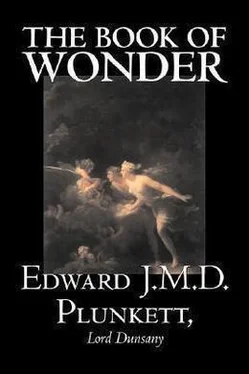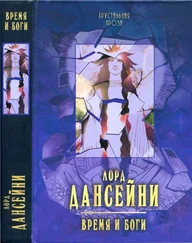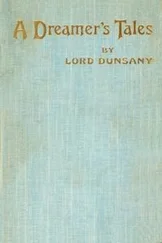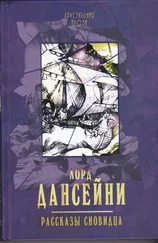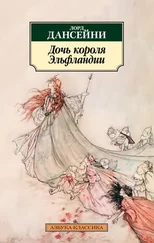And then she said that if they must needs have a quest she would offer her hand to him who first should move her to tears: and the quest should be called, for reference in histories or song, the Quest of the Queen's Tears, and he that achieved them she would wed, be he only a petty duke of lands unknown to romance.
And many were moved to anger, for they hoped for some bloody quest; but the old lords chamberlain said, as they muttered among themselves in a far, dark end of the chamber, that the quest was hard and wise, for that if she could ever weep she might also love. They had known her all her childhood; she had never sighed. Many men had she seen, suitors and courtiers, and had never turned her head after one went by. Her beauty was as still sunsets of bitter evenings when all the world is frore, a wonder and a chill. She was as a sun–stricken mountain uplifted alone, all beautiful with ice, a desolate and lonely radiance late at evening far up beyond the comfortable world, not quite to be companioned by the stars, the doom of the mountaineer.
If she could weep, they said, she could love, they said.
And she smiled pleasantly on those ardent princes, and troubadours concealing kingly names.
Then one by one they told, each suitor prince the story of his love, with outstretched hands and kneeling on the knee; and very sorry and pitiful were the tales, so that often up in the galleries some maid of the palace wept. And very graciously she nodded her head like a listless magnolia in the deeps of the night moving idly to all the breezes its glorious bloom.
And when the princes had told their desperate loves and had departed away with no other spoil than of their own tears only, even then there came the unknown troubadours and told their tales in song, concealing their gracious names.
And there was one, Ackronnion, clothed with rags, on which was the dust of roads, and underneath the rags was war–scarred armour whereon were the dints of blows; and when he stroked his harp and sang his song, in the gallery above maidens wept, and even old lords chamberlain whimpered among themselves and thereafter laughed through their tears and said: "It is easy to make old people weep and to bring idle tears from lazy girls; but he will not set a–weeping the Queen of the Woods."
And graciously she nodded, and he was the last. And disconsolate went away those dukes and princes, and troubadours in disguise. Yet Ackronnion pondered as he went away.
King he was of Afarmah, Lool and Haf, over–lord of Zeroora and hilly Chang, and duke of the dukedoms of Molong and Mlash, none of them unfamiliar with romance or unknown or overlooked in the making of myth. He pondered as he went in his thin disguise.
Now by those that do not remember their childhood, having other things to do, be it understood that underneath fairyland, which is, as all men know, at the edge of the world, there dwelleth the Gladsome Beast. A synonym he for joy.
It is known how the lark in its zenith, children at play out–of–doors, good witches and jolly old parents have all been compared—how aptly!—with this very same Gladsome Beast. Only one "crab" he has (if I may use slang for a moment to make myself perfectly clear), only one drawback, and that is that in the gladness of his heart he spoils the cabbages of the Old Man Who Looks After Fairyland,—and of course he eats men.
It must further be understood that whoever may obtain the tears of the Gladsome Beast in a bowl, and become drunken upon them, may move all persons to shed tears of joy so long as he remains inspired by the potion to sing or to make music.
Now Ackronnion pondered in this wise: that if he could obtain the tears of the Gladsome Beast by means of his art, withholding him from violence by the spell of music, and if a friend should slay the Gladsome Beast before his weeping ceased—for an end must come to weeping even with men—that so he might get safe away with the tears, and drink them before the Queen of the Woods and move her to tears of joy. He sought out therefore a humble knightly man who cared not for the beauty of Sylvia, Queen of the Woods, but had found a woodland maiden of his own once long ago in summer. And the man's name was Arrath, a subject of Ackronnion, a knight–at–arms of the spear–guard: and together they set out through the fields of fable until they came to Fairyland, a kingdom sunning itself (as all men know) for leagues along the edges of the world. And by a strange old pathway they came to the land they sought, through a wind blowing up the pathway sheer from space with a kind of metallic taste from the roving stars. Even so they came to the windy house of thatch where dwells the Old Man Who Looks After Fairyland sitting by parlour windows that look away from the world. He made them welcome in his star–ward parlour, telling them tales of Space, and when they named to him their perilous quest he said it would be a charity to kill the Gladsome Beast; for he was clearly one of those that liked not its happy ways. And then he took them out through his back door, for the front door had no pathway nor even a step—from it the old man used to empty his slops sheer on to the Southern Cross—and so they came to the garden wherein his cabbages were, and those flowers that only blow in Fairyland, turning their faces always towards the comet, and he pointed them out the way to the place he called Underneath, where the Gladsome Beast had his lair. Then they manoeuvred. Ackronnion was to go by the way of the steps with his harp and an agate bowl, while Arrath went round by a crag on the other side. Then the Old Man Who Looks After Fairyland went back to his windy house, muttering angrily as he passed his cabbages, for he did not love the ways of the Gladsome Beast; and the two friends parted on their separate ways.
Nothing perceived them but that ominous crow glutted overlong already upon the flesh of man.
The wind blew bleak from the stars.
At first there was dangerous climbing, and then Ackronnion gained the smooth, broad steps that led from the edge to the lair, and at that moment heard at the top of the steps the continuous chuckles of the Gladsome Beast.
He feared then that its mirth might be insuperable, not to be saddened by the most grievous song; nevertheless he did not turn back then, but softly climbed the stairs and, placing the agate bowl upon a step, struck up the chaunt called Dolorous. It told of desolate, regretted things befallen happy cities long since in the prime of the world. It told of how the gods and beasts and men had long ago loved beautiful companions, and long ago in vain. It told of the golden host of happy hopes, but not of their achieving. It told how Love scorned Death, but told of Death's laughter. The contented chuckles of the Gladsome Beast suddenly ceased in his lair. He rose and shook himself. He was still unhappy. Ackronnion still sang on the chaunt called Dolorous. The Gladsome Beast came mournfully up to him. Ackronnion ceased not for the sake of his panic, but still sang on. He sang of the malignity of time. Two tears welled large in the eyes of the Gladsome Beast. Ackronnion moved the agate bowl to a suitable spot with his foot. He sang of autumn and of passing away. Then the beast wept as the frore hills weep in the thaw, and the tears splashed big into the agate bowl. Ackronnion desperately chaunted on; he told of the glad unnoticed things men see and do not see again, of sunlight beheld unheeded on faces now withered away. The bowl was full. Ackronnion was desperate: the Beast was so close. Once he thought that its mouth was watering!—but it was only the tears that had run on the lips of the Beast. He felt as a morsel! The Beast was ceasing to weep! He sang of worlds that had disappointed the gods. And all of a sudden, crash! and the staunch spear of Arrath went home behind the shoulder, and the tears and the joyful ways of the Gladsome Beast were ended and over for ever.
Читать дальше
